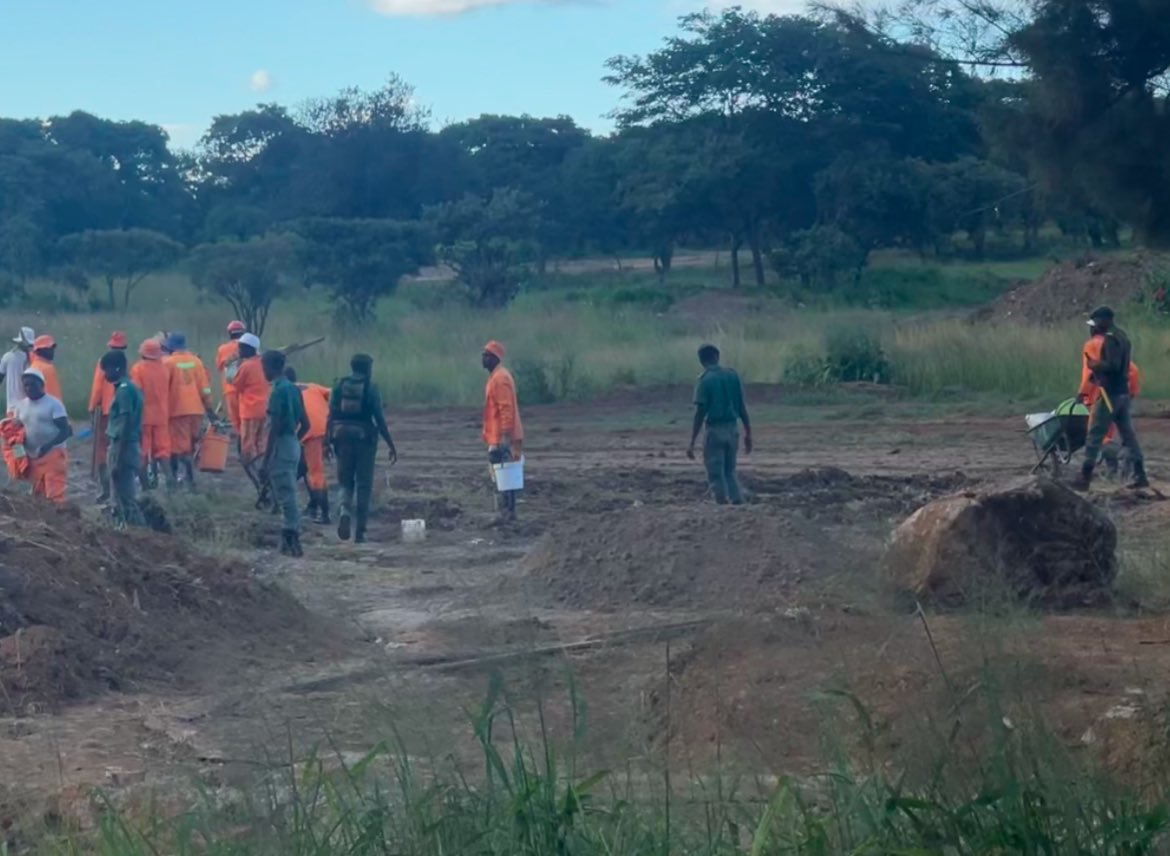Harare, Zimbabwe | A recent observation at the Warren Hills Golf Course development site has raised significant ethical and legal concerns.
Prisoners, under armed guard, were seen working on the construction of the perimeter wall for the housing estate currently taking shape. The project is reportedly a joint venture between Ken Sharpe’s West Properties and the City of Harare.
The use of prison labor for productive activities is not inherently controversial, particularly when it serves the purpose of rehabilitation, skill development, and generating resources for the prison service. However, it is essential to assess whether this labor is being utilized in accordance with Zimbabwean labor laws.
What the Law Says About Prison Labor
According to Section 4A of the Labour Act, forced labor is generally prohibited. However, certain exceptions exist, including work done by prisoners under the supervision and control of the Prisons and Correctional Service. However, the same law explicitly states that prisoners cannot be hired out or placed at the disposal of private companies or individuals.
This raises critical questions:
- Is this development a public or private project? If it is a government-led initiative, then the use of prison labor may be justifiable. However, if this is a purely private enterprise benefiting a publicly listed company like West Properties, then concerns of legality and fairness arise.
- Who authorized the use of prisoners for this project? Was there an official agreement between the Prisons and Correctional Service and West Properties?
- Are the prisoners being compensated? If not, does this amount to exploitation, given that their labor is directly contributing to a private company’s financial gain?
- Is this a precedent for future developments? If prisoners are being used on private projects, does this mean more companies could follow suit, blurring the lines between rehabilitation and forced labor?
Potential Legal Implications
If prisoners have been deployed for the benefit of a private company, this could violate Zimbabwe’s forced labor laws, which carry penalties of up to ten years in prison or a level 12 fine.
The law is clear that prison labor must serve a public function, not enrich private entities. Without transparency regarding the nature of this agreement, there is a risk that this practice could set a dangerous precedent.
A Call for Transparency
To address these concerns, the government and relevant authorities should clarify:
- The legal basis for using prisoners on this project
- Whether this is classified as a public-private partnership (PPP)
- What safeguards are in place to prevent prisoner exploitation
- If prisoners receive any remuneration or benefits for their work
Until these questions are answered, the sight of prisoners working on a private development raises serious ethical and legal concerns.
The Zimbabwe Prisons and Correctional Service, City of Harare, and West Properties owe the public an explanation.

For comments, Feedback and Opinions do get in touch with our editor on WhatsApp: +44 7949 297606.


